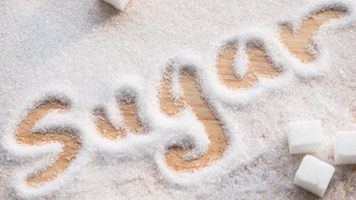‘Strong Demand’ To Keep Sugar Prices Rising
Category: Commentary, Miscellaneous, Sugar
 (Agrimoney) – Strong demand” will “support” world sugar prices, Abares said, lifting its forecast for futures values, even amid growing concern over the threat posed to Western consumption from health concerns.
(Agrimoney) – Strong demand” will “support” world sugar prices, Abares said, lifting its forecast for futures values, even amid growing concern over the threat posed to Western consumption from health concerns.
Abares, the official Australian commodities bureau, raised by 1 cent to 21 cents a pound its forecast for average sugar prices, as measured by New York’s spot futures contract, in 2016-17 on an October-to-September basis.
And it foresaw prices rising further next season, to average 22.0 cents a pound, before easing back to 20.8 cents a pound in 2018-19.
The forecasts imply prices well above those being factored in by investors, with spot New York raw sugar futures at 19.54 cents a pound, and contracts for 2017-18 averaging about 19.0 cents a pound.
For 2018-19, the market is pricing in an average price of roughly 18.2 cents a pound.
Output vs consumption growth rates
Abares said that its outlook reflected an “expectation that world sugar consumption will grow faster than production, reducing world stocks and the stocks-to-use ratio”, an important pricing metric.
Indeed, the bureau factored in decline totalling 15.7m tonnes in world sugar stocks over three successive seasons, to 2017-18, before a rebuild of 1.9m tonnes in 2018-19.
“Over the medium term, world sugar production is projected to grow at an average annual rate of around 1.6%,” the bureau said.
This projection was “based largely on an expected rise in area planted to cane and beet leading to production growth in Brazil, China, India, the European Union, Thailand and all smaller major producing countries”.
Consumption, meanwhile, is expected to “grow by an average of 2.3% a year”, after stalling next season thanks to the relatively high price of sugar compared with alternatives such as high fructose corn syrup (HFCS).
Expectations of medium-term expansion are “based on continued growth in demand for sugar in developing countries, driven by rapid expansion in the food-processing and beverage industries”, to meet demand spurred by rising incomes, growing populations and urbanisation.
‘Health consciousness’
Abares flagged in particular that “growth in consumption is projected for Brazil, China, India, Indonesia, the Russian Federation and Ukraine”.
However, it acknowledged that a “decline in consumption is projected in developed markets, particularly in the EU and the US”, thanks to slowdowns in population growth, and “dietary changes based on increased health consciousness”.
The comments come amid broader concerns over demand for sugar, which has increasingly been targeted as a cause of obesity, with some countries introducing sugar taxes, and companies increasingly looking at alternative sweeteners.
In the UK, which introduces a sugar tax next year, soft drinks group AG Barr said last week that it was accelerating a programme of cutting use of the sweetener, such that more than 90% of its portfolio will contain less than 5g of sugar per 100ml by this autumn.
“What is clear is that the manufacturers have, rightly or wrongly, espoused the cause of cutting down on sugar content,” London broker Marex said.
‘Massive impact on prices’
The impact on sugar prices “will be massive… if world consumption stops growing substantially,” the broker added.
“Productivity is continuing to improve in beet, and is likely to start improving in cane as new varieties begin in increase yields.
“So prices would at some stage have to fall to a level which put the more marginal producers out of business.”
However, Marex flagged too that sugar is “cheap, it tastes ‘nice’, it does give the consumer an energy boost, and above all, it fulfils a function in non-beverage products – ‘bulking’ – for which there seems to be no real substitute.
“So all these reasons, especially the ‘cheap’ aspect, may act to counter the anti-sugar fashion among industrial users.”
Bearish signal?
The 1.2m-tonne delivery of sugar last week against the expiring March contract, a record for a March lot, has also raised concerns over demand shorter-term, in potentially indicating less demand in Brazil than had been thought.
“The sugar headlines seem to be taken with the size of the March delivery being larger than expected with proportionally more Brazils than expected,” Sucden Financial said as the expiry approached.




